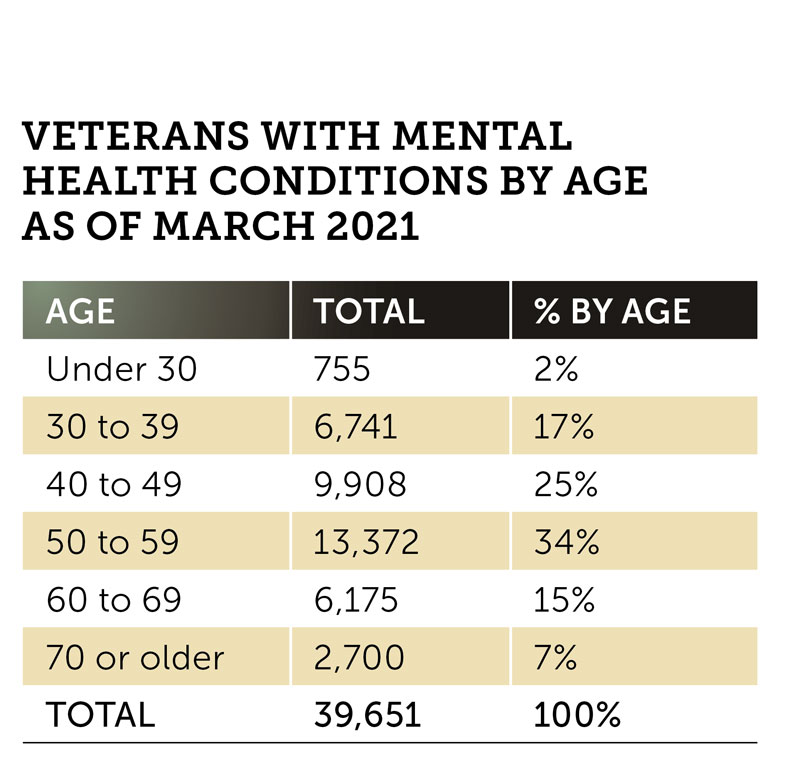Up to two years of mental health services are now available for veterans who apply, or have applied, to Veterans Affairs Canada seeking benefits.
“Early intervention and faster access to mental health services will lead to improved health outcomes for veterans,” said VAC spokesman Josh Bueckert in an e-mail.
Before April 1 this year, veterans required proof of a diagnosed medical condition and disability related to their service in order to have disability benefits approved. They would then qualify for treatement for mental health care.
As of March 2022, there was a backlog of 34,000 unprocessed disability benefit applications, creating up to a two-year lag for mental health care while a veteran waits for approval.
The 2021 federal budget provided $140 million over five years and $6 million in ongoing funding to VAC for a program to cover the aid costs for veterans with post-traumatic stress disorder, depression or anxiety disorders while their disability benefit application is being processed.
“We are pleased veterans will no longer have to wait many months to receive mental health treatment,” said Carolyn Hughes, deputy director of Veterans Services for The Royal Canadian Legion.
“As no additional lengthy forms will be required, the process should be fast and allow for treatment to be timely, hopefully leading to a better outcome and quality of life for veterans and their families.”
Even if their benefits claims are denied, veterans will continue to receive mental health benefits for the two-year period, VAC said.
“We are pleased veterans will no longer have to wait many months to receive mental health treatment.”

“For those already in the queue, it is welcome news, that their mental health treatment will be covered,” said Hughes.
The costs of treatment and examinations by mental health professionals, including psychologists, addictions counsellors and social workers, and prescription drugs will be covered.
Veterans are three to four times more likely to suffer from depression or anxiety disorders and 15 times more likely to experience PTSD than civilians.
Nearly a quarter of veterans who left service between 1998 and 2007 reported they had a diagnosed mental health condition, a 2010 study revealed.
About one-fifth of Canadian veterans experience a mental health disorder during their life—most commonly depression, anxiety and PTSD.
Advertisement













